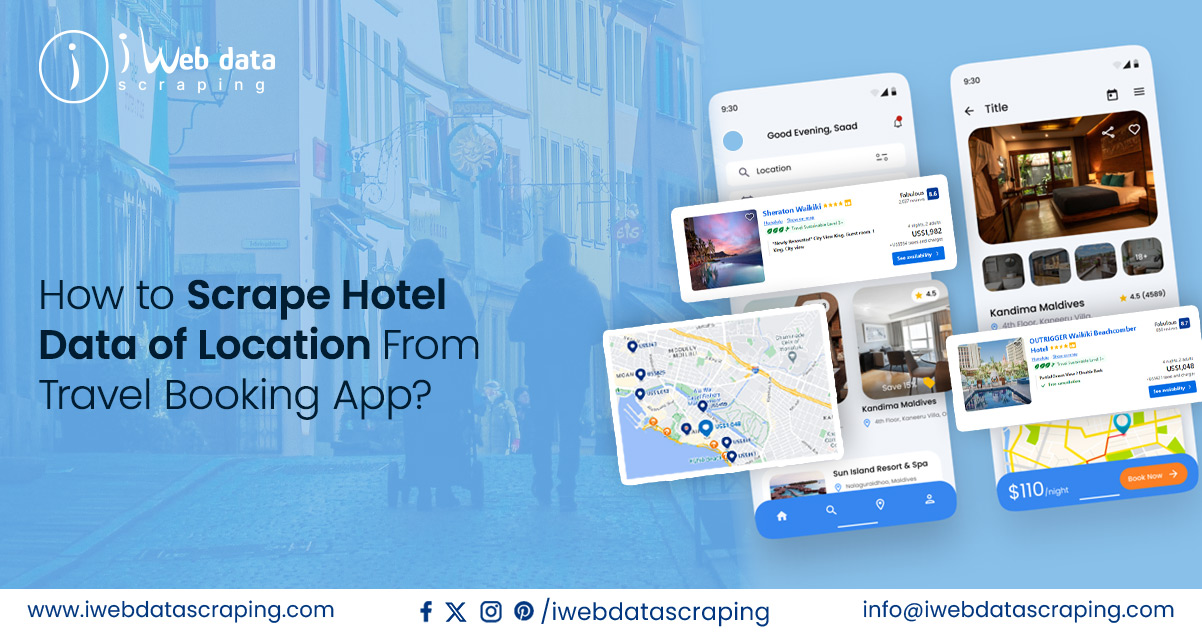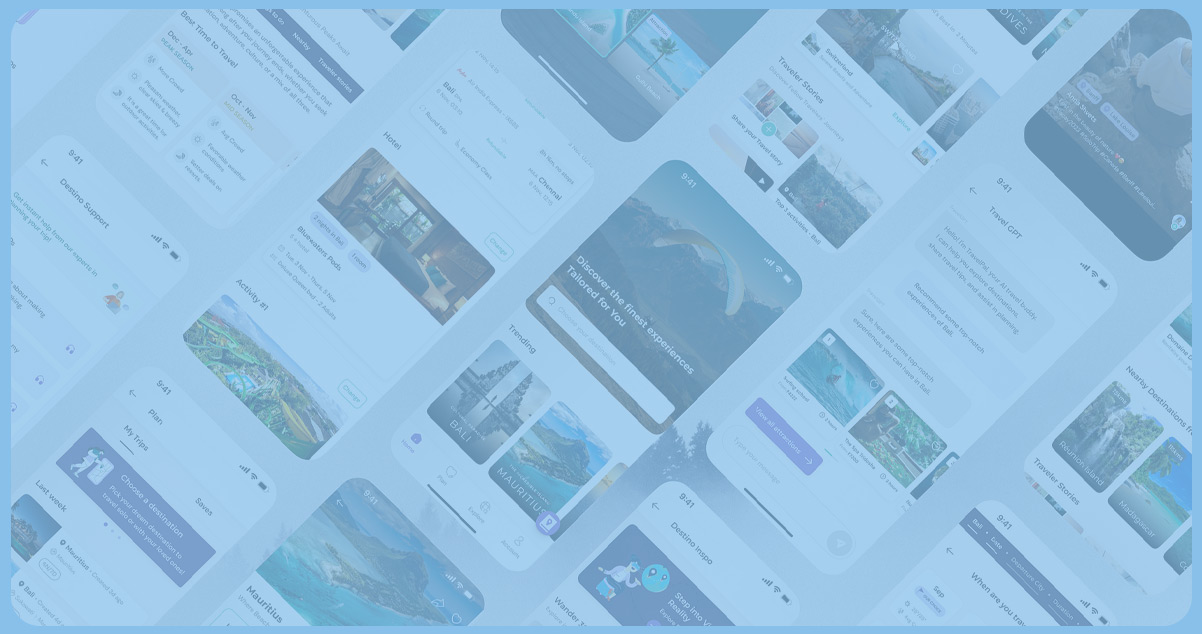

In our contemporary digital age, the travel industry has undergone a profound transformation, where data profoundly influences the process of making decisions. With the rise of technology, travelers' expectations have evolved, demanding access to comprehensive and up-to-date information concerning their accommodation choices and various transportation options. This article's primary objective is to be a practical guide, walking you through the intricacies of data scraping in travel industry from many sources. By completing this guide, you'll have a robust set of tools to derive valuable insights, enabling you to make more informed and optimized decisions for your future travel experiences.
Before delving into the intricate technical aspects of this process, it's vital to establish a strong foundation by understanding the core principles of web scraping and data collection. Web scraping is extracting specific data from websites, typically accomplished by utilizing programming languages such as Python and employing libraries like Beautiful Soup and Requests. These libraries empower you to navigate web pages seamlessly, collecting structured data that can be further analyzed and utilized for your specific needs.
Begin by meticulously identifying reliable data sources for your project, including hotel information, flight schedules, train routes, and bus timetables. Well-known websites such as Booking.com, Expedia, and Airbnb are excellent sources for detailed hotel information. Additionally, consider government websites and APIs for obtaining the necessary transportation datasets.
The core of your project involves web scraping for hotel data. It involves extracting details like hotel names, pricing, geographic locations, customer ratings, and reviews. The beauty of web scraping is that it allows you to tailor the code to your data requirements. Implement the automation using travel data scraping services to ensure your information remains up-to-date. In this regard, Python and libraries like Beautiful Soup prove highly effective for parsing HTML data.
To build a comprehensive travel dataset, you must integrate data on flight schedules, train routes, and bus timetables. It entails collecting and consolidating information from diverse sources. Government websites and transport companies often provide APIs that simplify the process of retrieving schedules and route data. These APIs enable you to maintain accurate and real-time information.
After successfully scraping and collecting the necessary data, your dataset's efficient organization and storage are pivotal. Databases like MySQL or PostgreSQL can be employed to manage your data efficiently. Furthermore, data analysis tools such as Pandas and Tableau become invaluable for deriving insights, creating visualizations, and drawing meaningful conclusions from your dataset.
Your comprehensive dataset allows you to delve into a treasure trove of insights. Scrape hotel data of location from travel booking app to identify ideal hotel locations based on transportation availability, crafting cost-effective travel itineraries, and uncovering trends in traveler preferences. Data-driven insights enable you to make informed decisions and enhance the quality of travel experiences.
Web scraping is a powerful tool, but it comes with ethical responsibilities. Awareness of the legal and ethical implications surrounding web scraping is crucial. Continually review and adhere to the terms of use of the websites you're scraping. Avoid overloading their servers, respect privacy laws, and ensure your data scraping activities comply with local regulations.
Import libraries such as Requests and Beautiful Soup for web scraping. Ensure you have them installed.
import requests
from bs4 import BeautifulSoup
Send an HTTP request to the website you want to scrape.
Parse the HTML content of the web page using Beautiful Soup.
soup = BeautifulSoup(response.text, "html.parser")
Locate the HTML elements that contain the data you need. Inspect the web page source code.
# Example: Extracting hotel names
hotel_names = [element.text for element in soup.find_all("h2", class_="sr-hotel__title")]
Store the extracted data in a suitable data structure for further processing. In this example, we'll use a list to store hotel names.
# Store the hotel names in a list
hotel_names = [element.text for element in soup.find_all("h2", class_="sr-hotel__title")]
You can now perform data analysis on the collected hotel data as needed. It may include sorting, filtering, or calculating statistics.
# Example: Sort hotel names alphabetically
sorted_hotel_names = sorted(hotel_names)
This example is a simplified illustration of scraping hotel data. To scrape transportation data like connecting flights, buses, and trains, you need to access relevant APIs and use a similar process to request, parse, and extract data from those sources.

Scraping hotel data and combining it with information about connecting flights, buses, and trains holds significant importance for several key stakeholders, as it provides valuable insights and benefits:
Conclusion: Scraping hotel data with connected flights, trains, and bus datasets presents a valuable opportunity to enhance travel planning and decision-making. By harnessing the combined power of web scraping and data analysis, you can create personalized and optimized travel experiences, manage your travel budget effectively, and uncover valuable insights in the ever-evolving travel industry. Staying updated with the latest travel information empowers you to make the most of your adventures using data-driven insights.
Please don't hesitate to contact iWeb Data Scraping for in-depth information! Whether you seek web scraping service or mobile app data scraping, we are here to help you. Contact us today to discuss your needs and see how our data scraping solutions can offer you efficiency and dependability.